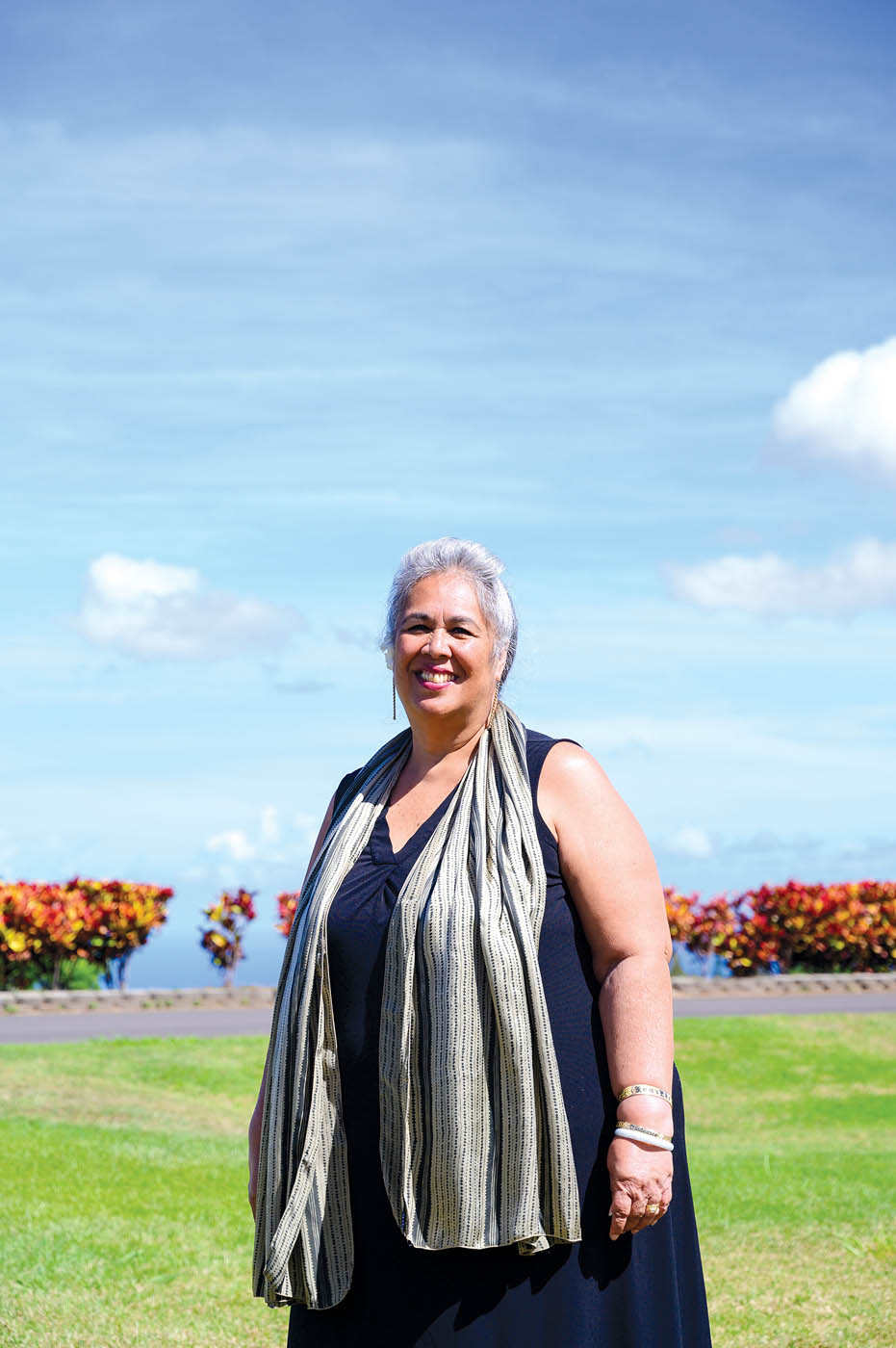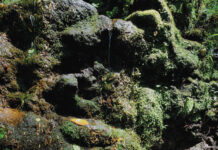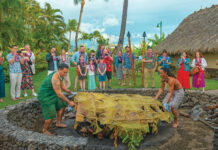Hawaiian Education
PART 5 OF A 5-PART SERIES ON HAWAIIAN TECHNOLOGY AND SCIENCE
1 | 2 | 3 | 4 | 5
Story by Teya Penniman | Photography by Mieko Horikoshi

When ‘Ekela Kani‘aupio-Crozier’s grandmother was five years old, her teacher placed masking tape on her mouth to keep her from speaking her native tongue—the only language she knew. ‘Ōlelo Hawai‘i, the Hawaiian language, was banned in schools; if she spoke, it had to be in English.
“But she held onto the language for this one grandchild [out of forty-five] she knew was going to come,” says ‘Ekela. “She knew that what they took away was the most important part of us.”
From ‘Ekela’s birth, her tūtū (grandmother) spoke to her only in Hawaiian, took her to church where services were conducted in Hawaiian, and somehow arranged for Hawaiian to be taught at her high school. As a teenager, ‘Ekela had her own ideas, and didn’t appreciate tūtū’s meddling—that is, until her grandmother finally shared her own story.
While a student at the University of Hawai‘i at Mānoa, ‘Ekela helped form a hui (group) to restore an ancient lo‘i (taro patch) on campus. Skeptics asked, “Why would anybody spend their Saturdays cleaning out this overgrown place?” Today, “that lo‘i has its own line item in the [university’s] budget,” says ‘Ekela. “Thousands of students and community members have volunteered there. Science, biology, social sciences, language arts—all exist in aloha ‘āina [love of the land], which is the foundation of our education.
“As the Hawaiian Renaissance took hold, people started to realize that speaking Hawaiian was not going to be just a fad, but a true means to communicate who we are. That’s what language does—it answers all these questions of why we do what we do, think the way we think, and believe what we believe. Hawaiian education is not just about ‘head’ knowledge, it’s also about your na‘au,” what’s known as the body’s core in western culture, but which in Hawaiian culture is the seat of thought, intellect and emotions.
These days, ‘Ekela serves as designer and facilitator of E Ola! Learning Outcomes at Kamehameha Schools Maui. This initiative places new emphasis on Hawaiian-based cultural education for the school established more than 150 years ago by Princess Bernice Pauahi Bishop, a great-granddaughter of King Kamehameha I. Pauahi had witnessed the dramatic decline of the Hawaiian population. Believing in the power of education to offer Hawaiian keiki a better future, she bequeathed her estate to found Kamehameha Schools. But the school didn’t mandate instruction in the Hawaiian language, nor emphasize Hawaiian culture, until recent years.
Today, says ‘Ekela, “Everyone who works here—teachers, the janitor, the web guy, the food-service people—is required to learn Hawaiian. The goal is to be a vibrant lāhui [nation, race].” And she sees progress elsewhere, as well, citing the formation of a collaborative network of more than fifty Hawaiian schools and organizations, and the recent addition (which ‘Ekela helped bring to fruition) of Hawaiian to the online Duolingo app as evidence of a worldwide interest in the language. She has a message for critics who say the language exists only within the classroom walls: “Our village is larger than it used to be.”
During a recent visit to Costco, the checker asked whether she had found everything she was looking for. ‘Ekela turned to her husband and said, in Hawaiian, “They ask same question every time and I always get the same answer.” To her surprise, the checker responded, “He aha ka nīnau.” (“I have a question.”) They carried on the rest of their conversation in ‘ōlelo Hawai‘i. And at Mama’s Fish House, the valet, hostess, and bartender were all fluent speakers. “We’re everywhere,” ‘Ekela says.





